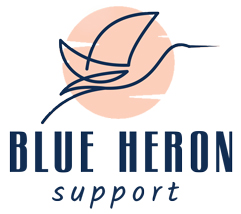
Theology
One thing I love so dearly about UU congregations is our rich theological diversity. It is one of my commitments and joys to minister to that theological diversity and celebrate our storied tradition of the “freedom of the pew.” And, I am moved, grounded, and called into this work by my own theological commitments, which I joyfully share with you below.
My personal theology is more dynamic than fixed or static, as new life experiences challenge me to question beliefs I previously held dear. That’s why I adore the language of our fourth principle, as I too am on a never-ending, free and responsible, search for truth and meaning. My God has shapeshifted over the years as I changed traditions (at the age of 13, I converted from Roman Catholicism to Unitarian Universalism), unlearned culture, and–as one does in seminary–reckoned with the existence of evil and suffering. I currently adhere to a part-theist, part-humanist “process theology” view of God, in which God is a participant in the unfolding of history, but not omniscient or omnipotent. In this view, God (I usually prefer “Spirit of Life” though) requires human hands to cocreate peace and justice on Earth, and the universe is dynamic and constantly evolving.

Liberation theology has had a large influence on me, and from it I’ve been able to hone my understanding of the theological heritage of our loving, impartial Universalist God. Liberation theology in principle requires God to take sides (in Fr. Gustavo Gutiérrez’s Latin American liberation theology, side with the poor; in James Cone’s black liberation theology, side with black folks). I think it’s essential that UUs reckon with the question: how do we reconcile the Universalist impartial God with the side-taking God of liberation theology? I think it’s essential that we find a way to embrace liberation theology as our liberal theological tradition grows and evolves in the twenty-first century, in order to fully live out our first principle of the inherent worth and dignity of all people. One way that I’ve reckoned with this theological challenge is through the notion that God (instead of dividing up love like rations) is overflowing with love and so, of course, would have particular concern and outrage for those daily dehumanized in different corners of the world.
One of the strengths of UU theology is that we look to the world religions among other sources for inspiration and insight. Since my time in India, I’ve been influenced by the Buddhist philosophy of “nonattachment” and the Hindu notion of seeing God all around us, in a certain unity and multiplicity. What’s more, by paying close attention to the non-dualism within most eastern traditions and the anthropology of deep interconnectedness in indigenous traditions, I find there to be an abundance of theological resources for a worldview that finally overcomes that western notion of distinctness and individualism. Our 7th UU principle takes on more meaning and depth when we learn from folks who have long been practicing interdependence, with each other, the land, and the Divine. Along with liberal and liberation theologies, Unitarian and Universalist theologies, process relational theologies, and drawing inspiration from world religions and earth-based spiritualities, my theology and preaching also draw heavily from eco-feminist, womanist, and post-colonial teachings.

The choir performing at the UU Church of Reading, the congregation where I grew up. I’ve always loved the symbols of the various world religions above the chancel. Photo taken by Melissa Martin, Member Services and Volunteer Coordinator.
What’s more, the Christian social gospel movement taught that a more meaningful perspective on salvation and afterlife, since we can’t know what happens after we die, was through the impulse to bring heaven to earth and eliminate all “hells” in the here and now. My theology of social justice is deeply influenced by this social gospel philosophy, which was espoused by Unitarians like Francis Greenwood Peabody and James Luther Adams.
As mentioned above, I love the theological pluralism inherent in Unitarian Universalism. But, it also poses a particular challenge for ministry. Here’s where I look to Alex Kapitan for guidance, who writes, in the UU World Article “Queering Faith,”
“Queering faith…means actively talking about our different beliefs, deeply sharing the practices that make each of us feel connected and grounded, and experiencing joy and wonder in how different they are. My queer faith teaches me that my truth does not depend on you having the same truth. That when both of us can live from a place of truth—different truths!—when both of us can come fully alive from those places of truth, and honor each other’s truth, then both of us will be free.”
When it comes to our internal theological diversity, I envision brave spaces where folks across difference can talk about the things that really matter to them, or as the theologian Paul Tillich says, those things of “ultimate concern.” I envision member-led rituals and traditions that reflect the full theological diversity of our membership, while avoiding as best we can the pitfalls of cultural misappropriation. And I envision a congregation made all the richer in the doing, growing spiritually and theologically and, in the words of Alex Kapitan, all getting free in the process.
A biting critique of liberal theology that I first heard in seminary and has since stuck with me was an argument from Dr. Wesley Wildman that liberal theology “lacks the moral clarity required to carry through the revolution it perpetually invites.” As a matter of response, I have a personal research interest in semi-systematic Unitarian and Universalist theologies and a passion within my ministry to risk talking about what really matters. I am passionate about teaching lifespan education on UU theology (whatever that means to you), whether that’s through Coming of Age classes, or adult–or intergenerational–workshops on constructing our own theology. And, I am excited by the prospects of getting to know what sustains you spiritually and theologically, and what you are currently wrestling with.



